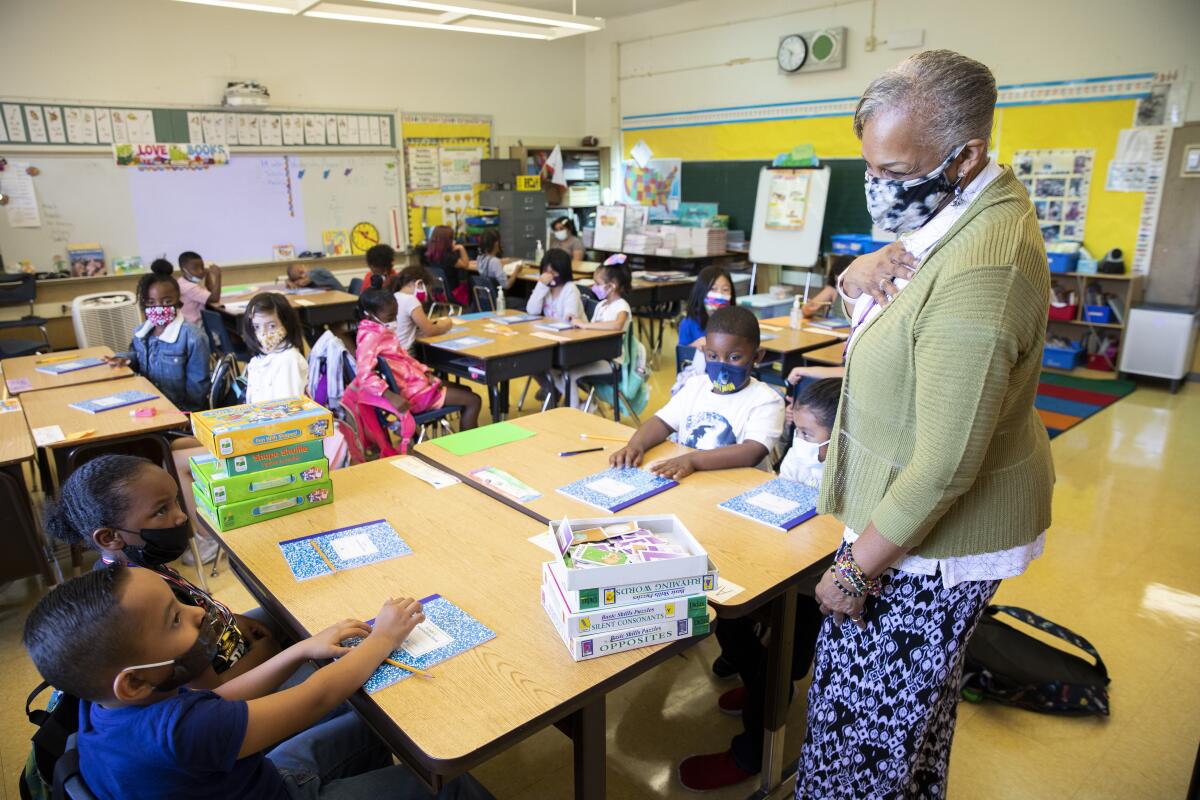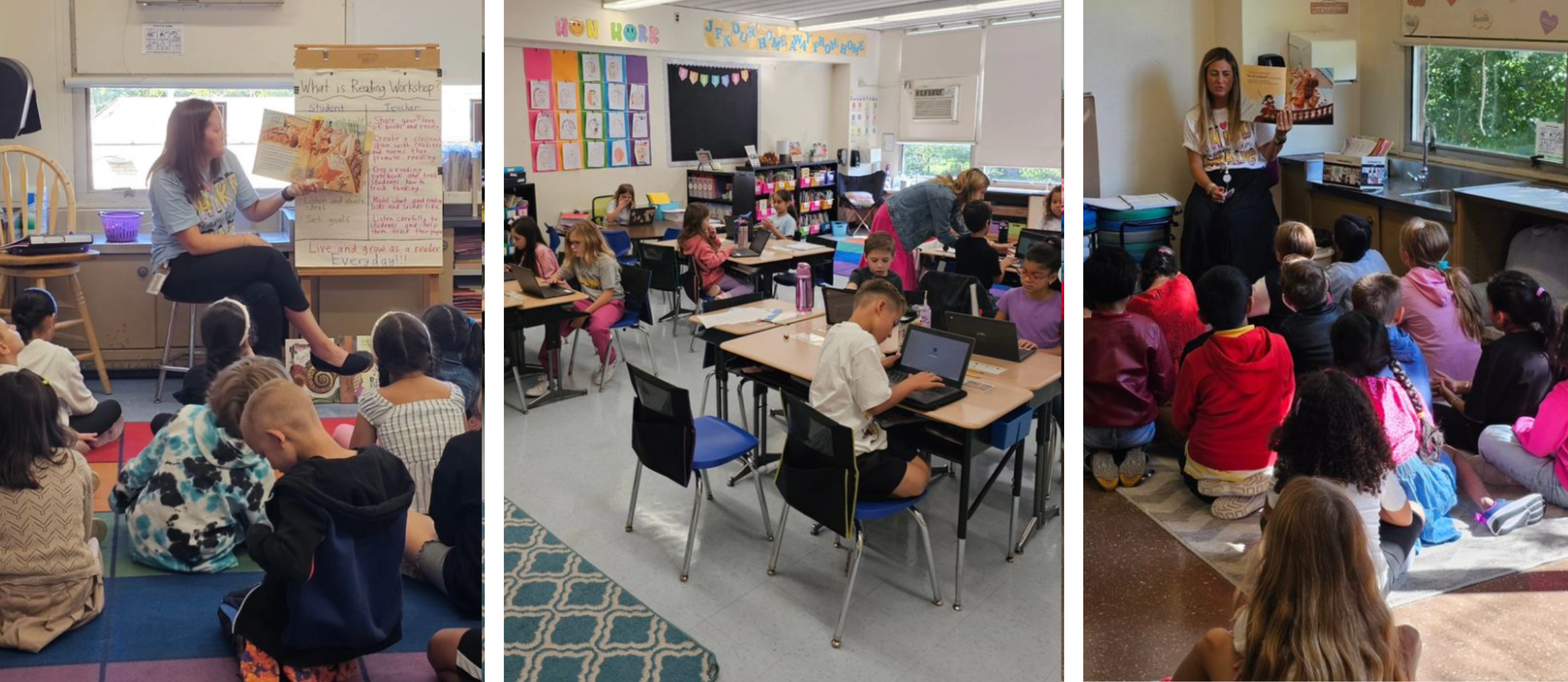Why It's Important to Rally With Each Other to Save Temecula Schools
Why It's Important to Rally With Each Other to Save Temecula Schools
Blog Article
Recognizing the Value of Schools in Child Development and Neighborhood Development
Schools offer as critical organizations for youngster development and area development, supplying settings where scholastic accomplishments are enhanced by the cultivation of social abilities and exposure to diverse perspectives. These instructional settings not just promote essential reasoning and efficient communication however also foster empathy with joint projects. Furthermore, colleges' interaction with neighborhood communities via service-learning efforts strengthens the bond between households and instructional organizations. This symbiotic partnership emphasizes the importance of colleges in supporting active citizenship and lifelong understanding practices. Nonetheless, what are the certain systems whereby these institutions achieve such profound impacts?
Academic Accomplishment
Academic achievement acts as a keystone of youngster advancement, giving the structure whereupon future knowing and success are built. Institutions play a pivotal role in promoting this scholastic growth, supplying organized settings where youngsters can get crucial understanding and cognitive abilities. Standardized educational program make sure that trainees gain proficiency in core topics such as mathematics, science, and language arts, which are essential for both higher education and learning and professional possibilities.
In enhancement to imparting essential academic skills, schools additionally grow important reasoning, analytical abilities, and intellectual inquisitiveness. These cognitive expertises are crucial for navigating complicated real-world scenarios and adapting to the ever-evolving needs of the contemporary office. Educators, as facilitators of learning, use varied pedagogical strategies to deal with varied learning styles, therefore taking full advantage of specific trainee potential.
Furthermore, academic success is closely connected to self-worth and motivation. Kids that experience scholastic accomplishments are most likely to establish a favorable self-concept and a long-lasting interest for discovering. Schools also supply various resources, such as libraries and modern technology, which even more boost the instructional experience and prepare trainees for a technically sophisticated society.
Social Skill Growth
Beyond scholastic accomplishment, the function of institutions in social ability advancement is vital. Schools act as a key place for kids to find out and practice essential social abilities such as conflict, communication, and cooperation resolution. In the organized setting of a classroom, pupils engage with peers, instructors, and other school personnel, offering many opportunities to develop these important capacities.
Reliable social skill growth in colleges is helped with with team activities, collaborative projects, and extracurricular programs. These interactions aid students comprehend social standards, build empathy, and foster a sense of area. Team projects show students exactly how to work together towards a typical objective, listen to different viewpoints, and navigate arguments constructively.

The cultivation of social skills during institution years lays a foundation for future individual and expert connections. Save Temecula Schools. As students grow, the capability to successfully collaborate and interact comes to be click now increasingly crucial, highlighting the school's critical role in all natural kid development
Direct Exposure to Variety
Direct exposure to variety in schools is basic to promoting an inclusive way of thinking and broadening trainees' point of views. Schools function as a microcosm browse around this web-site of the broader society, and experiencing varied societies, languages, and socioeconomic histories within this environment outfits pupils with important abilities for browsing a significantly globalized globe. This exposure motivates compassion, decreases prejudices, and promotes shared respect amongst peers.
Diverse classrooms likewise boost social and cognitive growth. Research study suggests that students who connect with peers from diverse histories show much better analytic skills and creativity. They find out to value different point of views, which enriches classroom conversations and cultivates an extra vibrant understanding experience. Moreover, this understanding of diversity prepares students for future workplaces that value modern competence.

Area Involvement
The advantages of varied class extend past the institution walls, promoting a strong sense of neighborhood interaction amongst students. By connecting with peers from various cultural, socioeconomic, and ethnic histories, students obtain a more comprehensive perspective and an appreciation for diversity. This exposure motivates them to end up being energetic residents that are eager to add positively to their areas.
Colleges that stress community interaction commonly integrate service-learning jobs, which allow pupils to resolve real-world problems while using scholastic skills. These jobs not only enhance students' understanding of their coursework yet additionally a knockout post instill a feeling of obligation and empathy. Collaborations between colleges and neighborhood organizations give trainees with possibilities to get involved in neighborhood events, even more strengthening their duty as aggressive neighborhood participants - Save Temecula Schools.
In addition, adult and community participation in institutions strengthens the bond in between instructional institutions and the areas they offer. Via these initiatives, colleges play a crucial duty in nurturing neighborhood interaction and cultivating societal growth.
Lifelong Knowing Practices
Developing long-lasting understanding practices is crucial for a child's continual development and versatility in an ever-changing globe. Schools play a critical function in instilling these practices by creating an atmosphere that fosters curiosity, important thinking, and a love for understanding. With diverse curricula and after-school activities, educators encourage trainees to explore various subjects, evaluate information seriously, and use their finding out to real-world situations.

Moreover, schools give a structured environment where kids can develop self-discipline and time administration skills, both of which are crucial for continuous discovering. By emphasizing the significance of setting objectives, assessing progress, and adjusting strategies, universities prepare students to navigate the intricacies of adult life, ensuring they continue to be long-lasting learners and factors to culture.
Conclusion
In final thought, institutions are vital in fostering child advancement and community development by giving environments conducive to scholastic accomplishment, social ability advancement, and direct exposure to variety. Eventually, institutions cultivate lifelong understanding routines, equipping individuals with the required knowledge and abilities to contribute favorably to society.
In the structured setting of a classroom, students interact with peers, teachers, and various other institution staff, providing countless opportunities to create these crucial abilities.
In essence, exposure to variety within schools not just enriches private trainees however likewise enhances the social fabric of the community as a whole.
The advantages of varied class expand past the college wall surfaces, cultivating a solid feeling of neighborhood interaction amongst trainees.Institutions that highlight area involvement commonly integrate service-learning projects, which allow pupils to resolve real-world troubles while using scholastic abilities. Collaborations between schools and regional organizations give trainees with opportunities to take part in area events, better strengthening their role as aggressive community participants.
Report this page